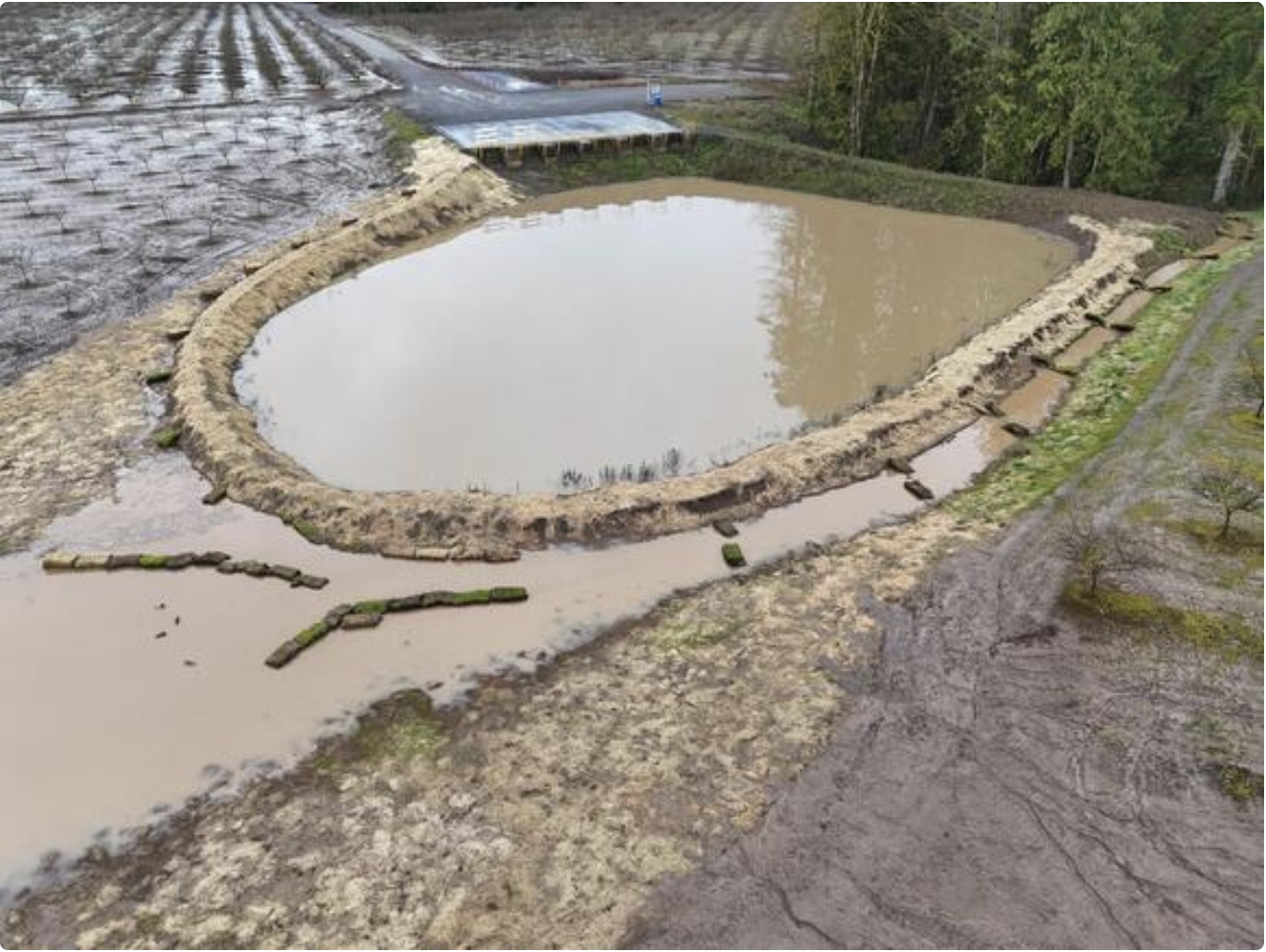AURORA, Ore. — Marion County has denied an application to reopen a disputed waste pit on farmland in Aurora, instead ordering the removal of the pit’s berm, asphalt dumping stations, and other infrastructure.
The decision marks a significant victory for farmland preservation advocates, who argued the project posed environmental risks and violated zoning laws.
County Rules Disposal Site Is Not a Farm Use
The 129-acre property, located at 21875 Butteville Road, sits within an Exclusive Farm Use (EFU) zone. The site was constructed and operated beginning in 2023 by Greg Wing of All-Ways Excavating, who charged $300 per load to accept waste from industrial vacuum excavation, commonly known as vactor trucks.
Also Read
Wing and property owner Denise Burnham contended the project’s purpose was to fill low-lying areas for agricultural use, which is permitted under Oregon law. However, Marion County Planning Director Brandon Reich rejected that argument.
“The primary purpose of this dump site appears to be obtaining a profit from the disposal of industrial and commercial vactor truck waste. This does not constitute farm use, rather, this is a solid waste disposal site,” Reich wrote in his decision.
He added that excavating the land to create space for fill material contradicted the claim that the goal was simply leveling the property for farming.
Environmental and Community Concerns
Neighbors and land-use groups, including the advocacy organization Friends of French Prairie, argued the pit was unpermitted and hazardous.
“This is a very important decision for farmland in Oregon because it means that at least in Marion County the owner of a farm cannot decide to turn it into a dump site for revenue,” said Ben Williams, the group’s president.
Multiple agencies raised environmental concerns about the site, warning that the unregulated dumping could threaten surrounding soil and water quality.
History of Regulatory Actions
The Aurora pit has faced scrutiny since November 2023, when Friends of French Prairie first raised alarms. In January 2024, the Oregon Department of Environmental Quality (DEQ) issued a pre-enforcement notice to Burnham, citing four environmental violations and ordering her to stop accepting waste. Operations ceased the following day.
In March 2025, DEQ escalated its action with a formal order requiring Burnham to either properly reconstruct or decommission the pit. Burnham appealed, submitting an engineering report that claimed the risk of berm failure was low. DEQ later withdrew its order on September 3, 2025.
Despite DEQ’s withdrawal, Marion County’s new order requires removal of the pit and its related facilities. Burnham now has the option to appeal to the county hearings officer.
Another Disposal Site Under Investigation
The Aurora pit is not the only facility linked to Wing facing scrutiny. Another disposal site he built at 14616 Whiskey Hill Road NE in Hubbard was cited in April 2024.
There, DEQ found five environmental law violations against property owners David and Susette McDonald. Regulators ordered the McDonalds to stop accepting waste, which they did, and directed them to either apply for a disposal permit, remove the waste, or prove the material was clean fill exempt from oversight.
As of now, DEQ continues to negotiate with the McDonalds over how to address the site.
Legal Battles Surround Hubbard Site
The Hubbard pit has also sparked legal disputes. The McDonalds filed a $15 million lawsuit against Wing, accusing him of negligence, fraud, and elder abuse. Wing has denied the allegations and filed a crossclaim against Jake McDonald, the McDonalds’ grandson, and Dark Horse Construction, a local excavator.
The legal proceedings are currently on hold until February, pending a DEQ decision on the scope of environmental remediation required at the property.
Looking Ahead
For now, the Marion County ruling closes the door on reopening the Aurora pit. Land-use advocates see it as a precedent-setting decision to protect Oregon farmland from becoming industrial dumping grounds.
Burnham and Wing, however, still have legal avenues to pursue, including a possible appeal. Meanwhile, the broader debate over balancing agricultural land use with industrial waste disposal in Oregon appears far from over.












